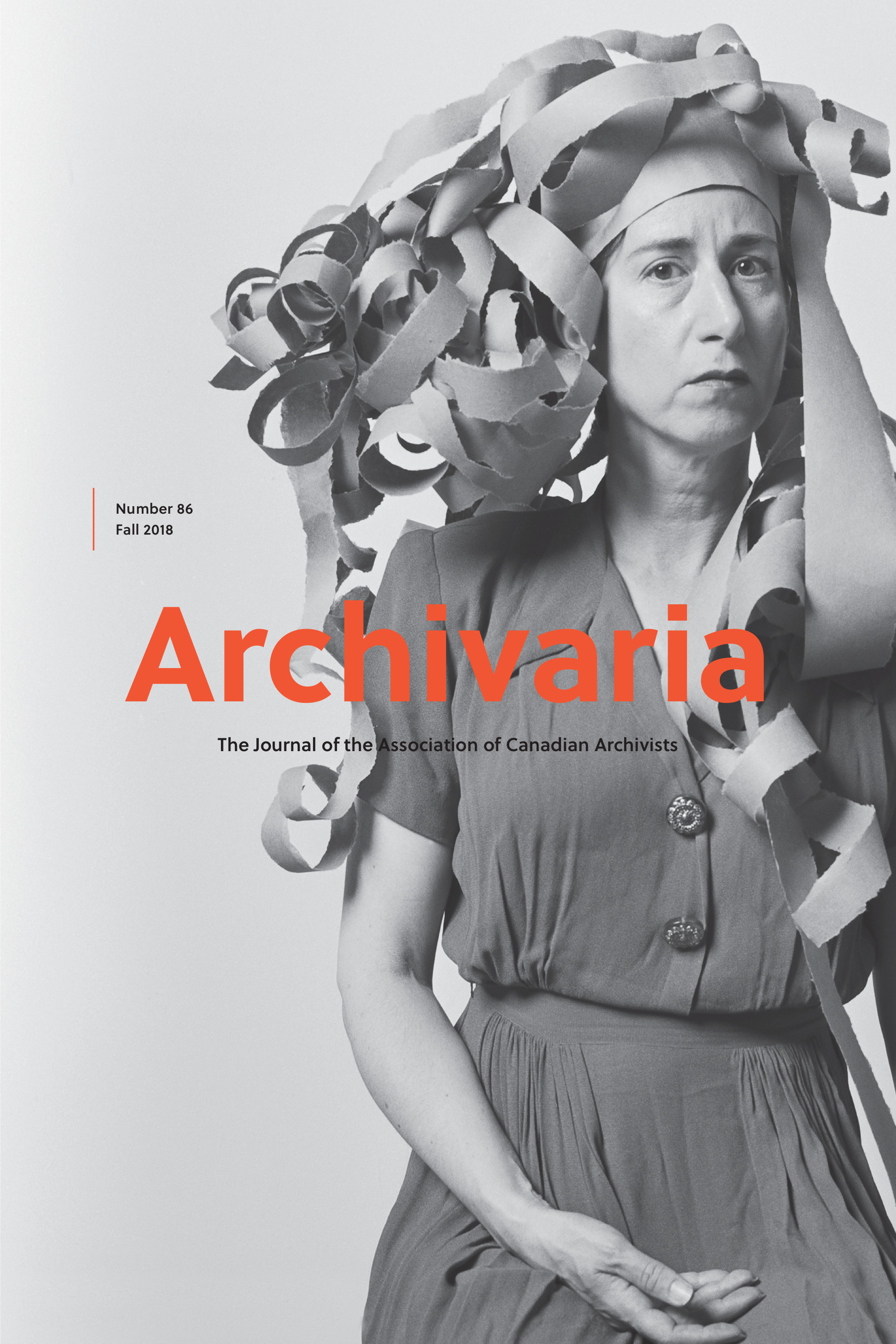The Reconfiguration of the Archive as Data to Be Mined
Abstract
This article discusses changing practices brought about by the move to online digital records, the impact these are having on the way history is written, and the way in which archivists are responding (and will need to respond in the future). We argue that digital administrative records are surrounded by other sources – online newspapers and social media – and that the huge volume of digital records alters the way historians read material. This will require a shift in approach from archivists, who will need to view archives as collections of data to be mined and not as texts to be read. Approaches to appraisal will need to be modified, and archivists will need to understand the tools and techniques used to make sense of digital records. While grappling with these issues, archivists will also need to recognize that the future record will be as much about sound and vision as about text.
RÉSUMÉ
Cet article aborde les pratiques changeantes occasionnées par le passage vers les documents numériques en ligne, l’impact de ces changements sur la façon dont l’histoire est écrite, et les façons dont les archivistes réagissent (et devront réagir à l’avenir). Nous soutenons que les documents administratifs numériques sont entourés d’autres sources – quotidiens en ligne et médias sociaux – et que la quantité énorme de documents numériques modifie la façon dont les historiens lisent le matériel. Ceci nécessitera un changement dans l’approche des archivistes qui devront voir les archives comme collections de données à exploiter et non comme textes à lire. Les approches en évaluation archivistique devront être modifiées et les archivistes devront bien saisir les outils et techniques qui servent à comprendre les documents numériques. Tout en faisant face à ces questions, les archivistes devront aussi reconnaître que le document d’archives de l’avenir sera autant une question de son et d’images que de texte.
Authors of manuscripts accepted for publication retain copyright in their work. They are required to sign the Agreement on Authors' Rights and Responsibilities that permits Archivaria to publish and disseminate the work in print and electronically. In the same agreement, authors are required to confirm that "the material submitted for publication in Archivaria, both in its paper and electronic versions, including reproductions of other works (e.g. photographs, maps, etc.) does not infringe upon any existing copyright." Authors of manuscripts accepted for publication retain copyright in their work and are able to publish their articles in institutional repositories or elsewhere as long as the piece is posted after its original appearance on archivaria.ca. Any reproduction within one year following the date of this agreement requires the permission of the General Editor.





